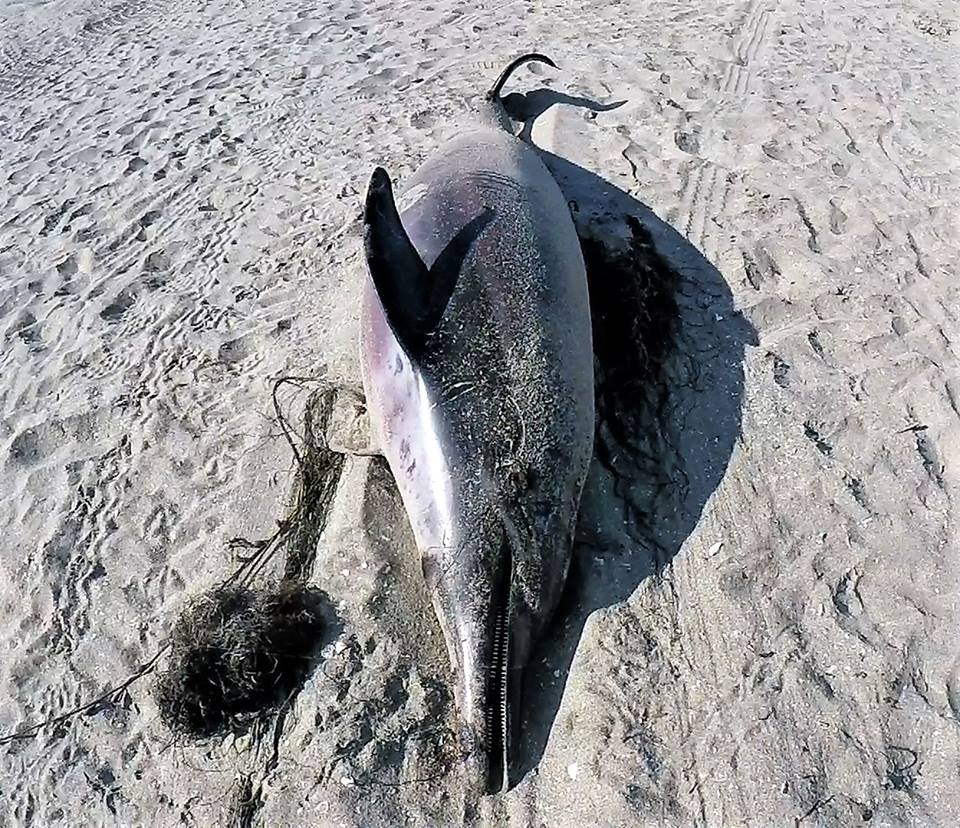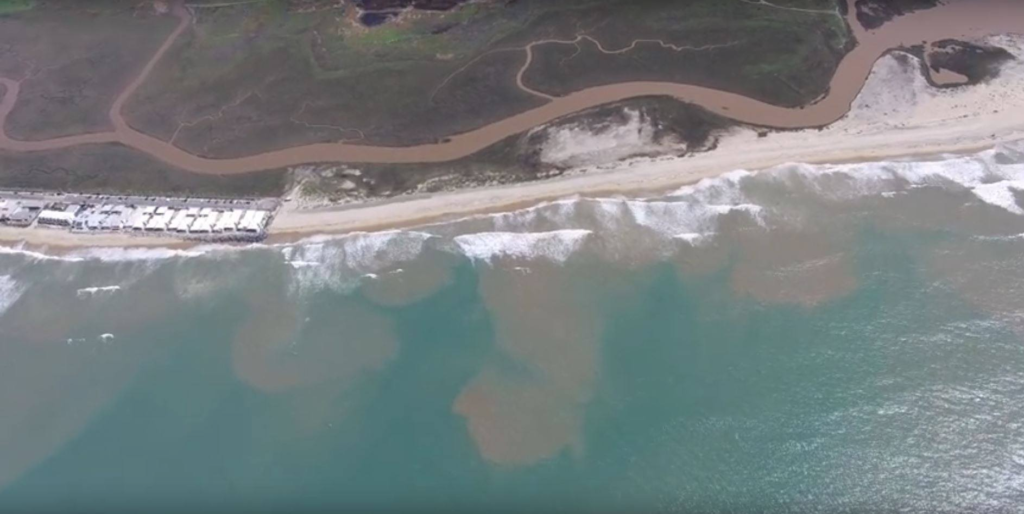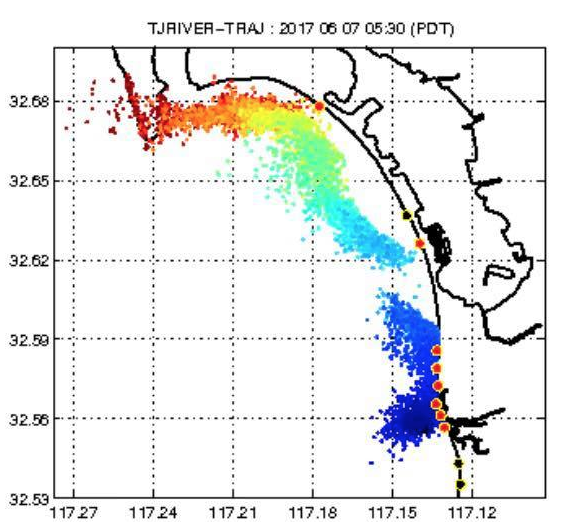
Residents of Imperial Beach and Coronado say they have seen a spike in deceased marine life on local beaches since the recent unprecedented sewage spills from Tijuana amounting to hundreds of millions of gallons of sewage flowing into the ocean.
“I am not a marine biologist, but I have certainly observed an uptick in deceased marine animals,” says Coronado Cays resident and surfer Daron Case. “The timing coincides with the sewage spill.”
There have been reports of pelicans, sea lions, and dolphins, and fish washed up on the shore line and floating lifelessly in the water.
Most recently, on June 5, 2017, a dead baby dolphin washed ashore at Elder Street in Imperial Beach. Residents notified the National Oceanic and Atmospheric Administration (NOAA) of their findings, in hopes of having a necropsy performed.

After seeing the aesthetic and life-threatening effects of the spills, local surfers are weary of catching waves along the coast.
“I have no doubt surfed fewer days in 2017 than any other year in recent memory,” says Case. “This is a direct result of the sewage spills and related beach closures.”
A recent Coronado City Manager’s Weekly Update cites two beach closures due to high levels of contamination, for a total of 11 days, for the City of Coronado beach in 2017. According to the Beach Report Card though, Silver Strand is listed as a separate entity from the main Coronado beach, and the Silver Strand beach has had six closures, spanning 32 days in 2017 (data through 5/12/17).

Case says he monitors the ocean’s conditions daily, including water quality testing by the San Diego County Department of Environmental Health (DEH) and the Tijuana River plume tracker.
“The plume tracker is one of many ‘indicators’ that we have to rely on,” Case adds. “Unlike a water quality lab test, it is not determinative, but we do use the plume tracker in conjunction with other factors, such as water color and smell, before making a determination whether to paddle.”
As reported in May, DEH water quality testing is infrequent and at least one day behind (as their tests take minimum 18 hours for “preliminary results”). Case, alongside other local residents, is pressing the Coronado City Council to cooperate with the City of Imperial Beach to implement and fund a program for “rapid results water quality testing” that would provide same day water quality results when several “indicators” (e.g., plume tracker, recent rains and/or sewage spills, water color & smell, etc.) suggest possible contamination.
According to Councilwoman Carrie Downey, who addressed the issue during a council meeting on June 6, 2017, water quality testing is not the city of Coronado’s responsibility, it’s the Department of Environmental Health (DEH), which falls on the county’s shoulders. Downey mentioned the DEH is working on a quicker test that won’t take several days to complete.
The Environmental Protection Agengy (EPA) recently estimated that it could cost upwards of $400M to fix the problem and put a stop to the sewage spills.
Links mentioned in article for more information:
- Beach Report Card presented by Heal the Bay
- Surfrider Foundation San Diego Chapter
- Southern California Coastal Ocean Observing System (Plume Tracker)
- County of San Diego Beach Water Quality (DEH)




